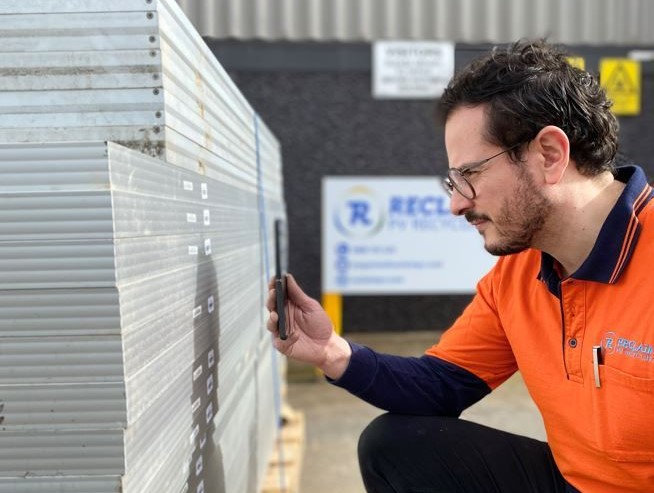Singapore-headquartered solar manufacturer Maxeon Solar Technologies, which sells in Australia under the SunPower Maxeon brand, said the partnership with Reclaim PV will ensure its panels that have come to the end of their useful lives will be recycled and not discarded into landfill.
With the rollout of rooftop and large-scale solar PV in Australia showing no signs of slowing, the number of end-of-life solar panels is destined to grow exponentially. Analysis from international consultancy firm Rystad Energy indicates that solar PV waste will grow to 27 million tonnes per annum by 2040. The Federal Government projects that in Australia, more than 1.5 million tonnes of solar PV waste will be generated each year by 2050. Currently, almost all broken or expired solar panels go into landfill.
Reclaim PV, which launched its first recycling facility in Adelaide last year and expects to collect more than 90,000 panels or the equivalent of 3,000 tonnes of PV modules in 2022, is among a suite of Australian companies looking to re-use or recycle solar panel materials.
Reclaim PV director Clive Fleming said the partnership with Maxeon is an important step forward in the responsible recycling of end-of-life solar panels. “Maxeon is one of the first manufacturers to adopt responsible recycling in their supply chain and to partner with Reclaim PV to help solve the PV recycling challenge that Australia is facing,” he said. “We look forward to continuing to work with them to keep solar panels out of landfill.”
Reclaim PV uses a recycling process known as pyrolysis – a thermal deconstruction technique that breaks down and separates PV panels into their component parts by passing them through a high-temperature furnace. Upon completion of the thermal extraction process, the recovered components are sorted and placed into collection bins for delivery to materials companies, ensuring all recoverable materials are available for re-use.
Fleming said Reclaim PV also provides services beyond collection and recycling with the company also compiling and storing information on the materials in the panels it recycles. This additional data collection service will help to build a complete and transparent picture of the materials being extracted from the solar panels and where they are supplied back into Australian supply chains, with a carbon offset value calculated to show the positive effects of recycling.
“The importance of the data recording and supply mapping process is that we are able to bring transparency to the material recovery and supply process and can now make informed decisions on how we can in part replace the use of virgin mined materials within other industries with recycled materials from solar panels,” Fleming said. “This is something that both Reclaim PV and Maxeon see as having huge potential for both the solar panel supply chain and the entire circular economy.”
Maxeon’s APAC vice president Chris O’Brien said the manufacturer’s partnership with Reclaim PV is a sign of the company’s commitment to a circular solar economy. “We take sustainability very seriously and continue to innovate by developing more efficient, more sustainable and longer-lasting panels that ease the burden of the recycling process and ensure a positive impact on people and the planet,” he said. “Our partnership with Reclaim PV in Australia is a tangible demonstration of our commitment to ESG principles and goals.”
This content is protected by copyright and may not be reused. If you want to cooperate with us and would like to reuse some of our content, please contact: editors@pv-magazine.com.




2 comments
By submitting this form you agree to pv magazine using your data for the purposes of publishing your comment.
Your personal data will only be disclosed or otherwise transmitted to third parties for the purposes of spam filtering or if this is necessary for technical maintenance of the website. Any other transfer to third parties will not take place unless this is justified on the basis of applicable data protection regulations or if pv magazine is legally obliged to do so.
You may revoke this consent at any time with effect for the future, in which case your personal data will be deleted immediately. Otherwise, your data will be deleted if pv magazine has processed your request or the purpose of data storage is fulfilled.
Further information on data privacy can be found in our Data Protection Policy.